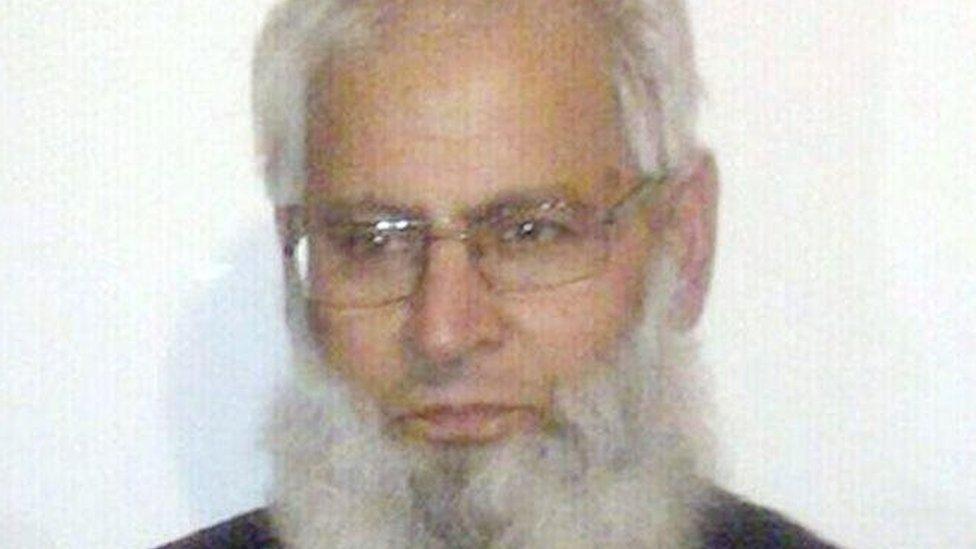Murderer Pavlo Lapshyn made explosive substance in prison cell
- Published

Pavlo Lapshyn was jailed in 2013 for murdering an 82-year-old grandfather
A white supremacist serving life for murder and plotting to bomb mosques has pleaded guilty to making an explosive substance in his prison cell.
Chemical engineer Pavlo Lapshyn, 32, used substances including salt, copper wire and pencil to form an ingredient used to cause an explosion.
He admitted to prison officers he had been preparing chemicals in his cell at HMP Wakefield.
He was jailed in 2013 for murdering Mohammed Saleem, 82, in Birmingham.
Mr Saleem was stabbed to death after attending prayers at his local mosque.
Lapshyn, from Dnipropetrovsk in Ukraine, had arrived in the UK five days before and was on a temporary work placement when he killed the grandfather of 22.
He later planted three bombs near mosques in the West Midlands as part of a campaign he said was motivated by racial hatred.

Mohammed Saleem was stabbed to death by Lapshyn after attending prayers at his mosque
The sentencing judge at the time said Lapsyn held white supremacist views and was "motivated to commit the offences by religious and racial hatred".
Since being jailed he has been psychiatrically assessed and has an autism diagnosis and "significant mental health problems", Leeds Crown Court heard.
Peter Hampton, prosecuting, said a smell of bleach could be detected in his cell and Lapshyn told officers he was trying to produce potassium chloride.
A forensic expert who was called in determined he had formed a viable explosive substance.
He pleaded guilty to making an explosive substance via a videolink from HMP Whitemoor and was heard singing at points during the hearing where he was given a two-year jail sentence.
Judge Tom Bayliss said he would not pass a consecutive sentence as Lapshyn - whom he described as a "highly intelligent man" - was already serving life with a minimum term of 40 years.
He said: "He wouldn't even be considered for release by the Parole Board until he is 65 and he is very unlikely ever to be released given his position."
- Published25 October 2013
